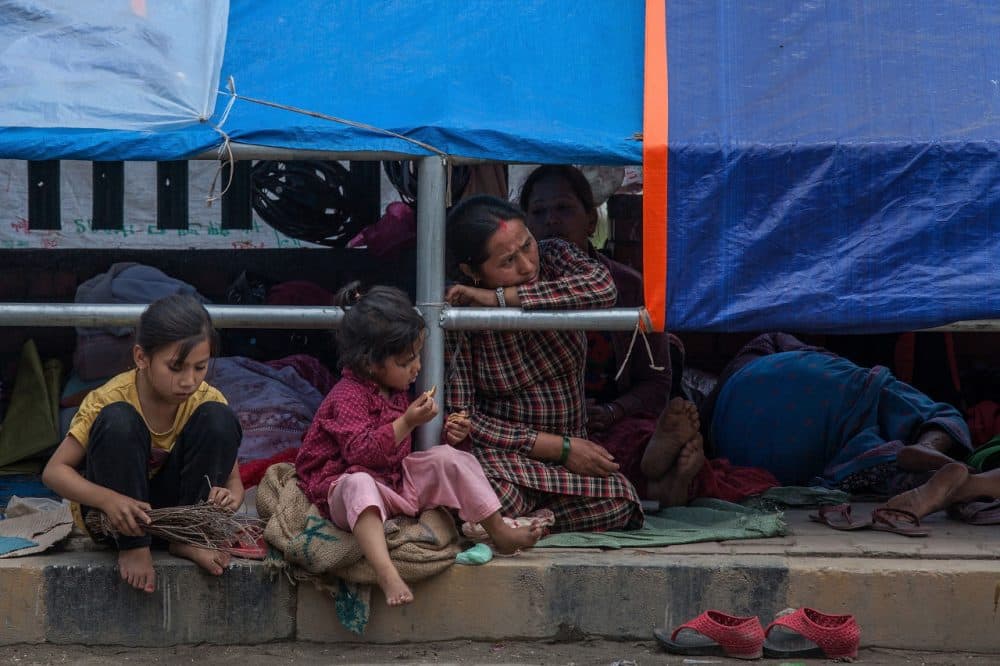Advertisement
'Tension Rising' In Nepal, Says Aid Worker
Resume
Supplies of food and water are getting scarce in Kathmandu, Nepal after this weekend's deadly earthquake.
Brad Kerner with the aid group Save the Children is there. He estimates that 1 million Nepalese children are in need of help, including assistance coping with shock. He tells Here & Now's Robin Young that families are sleeping under tarps in the cold and rainy weather.
Interview Highlights
On the trauma facing people
"Although the original earthquake was terrifying and lasted almost a minute long, I mean, living through that myself was a hard thing, but now these small two second-shakes, three-second shakes, they shake people up."
On what the aftershocks have been like
"Last night, while we were sleeping in the rain and the cold, between probably 11 p.m. and 5 a.m., we experienced three of those, and I know because I'm sleeping here with many families, and the kids wake up. The dogs start to bark, the kids start to cry and I hear their mothers consoling them. That's the sounds that we're hearing ... It's very traumatizing."
On the mounting tension in the days after the quake
"I hear both sides. I've heard great stories of neighborhood associations banding together, going through rubble, finding survivors in their own neighborhood. This is a hand-by-brick operation — they are uncovering people on their own, with their hands. But you know, as the days go on, tension is rising. I think because you live in fear, and I think people are also fearful around the supplies of food and water."
How You Can Help
The following organizations are on the ground in Nepal and offer instructions on their sites with how you can help those suffering from this disaster.
Guest
- Brad Kerner, aid worker with Save the Children.
This segment aired on April 27, 2015.